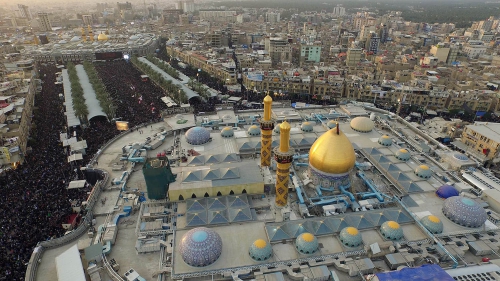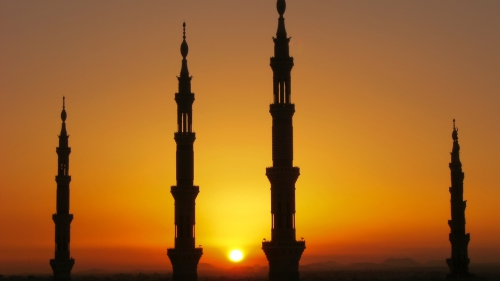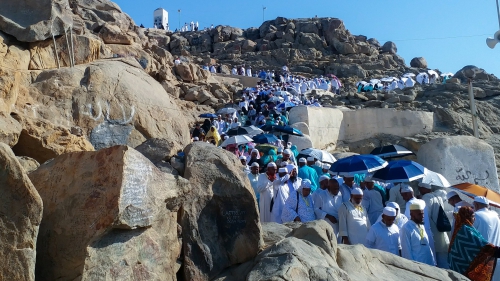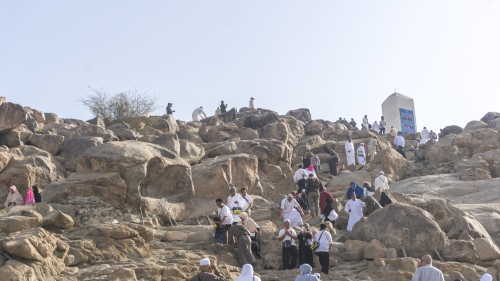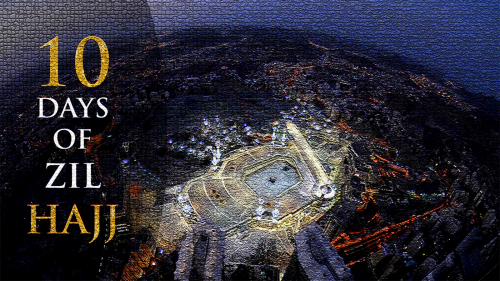Why Muslims Pray More Often Than Jews?
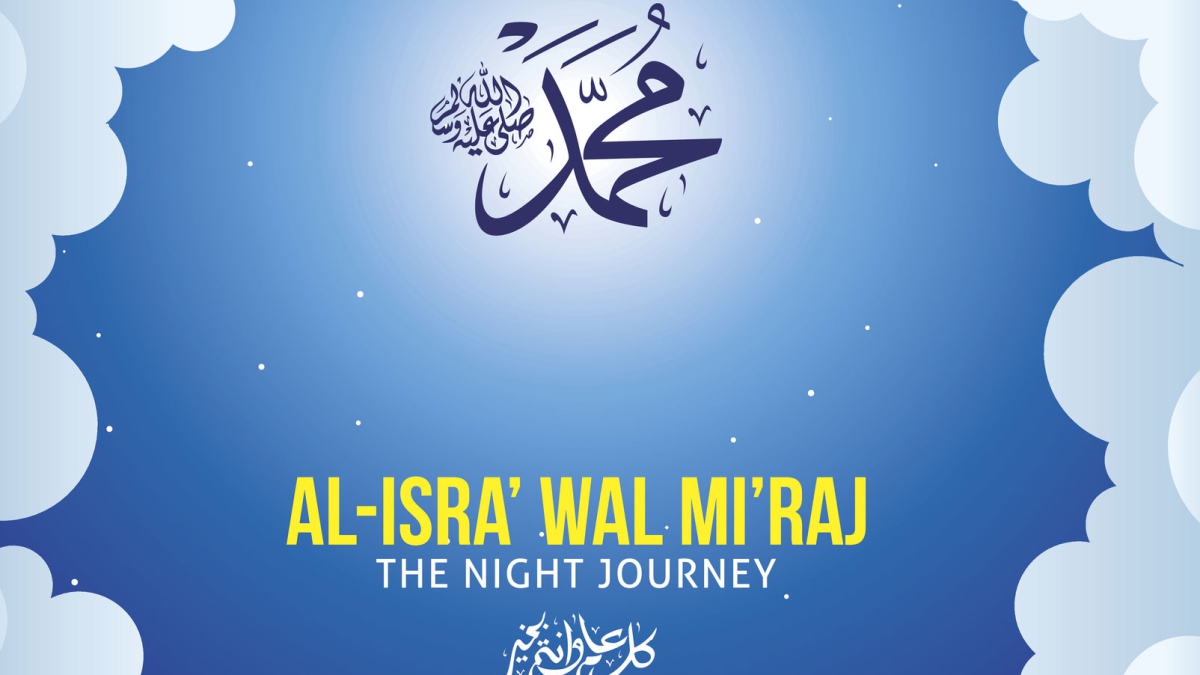
On Isra [April 3] this year, Muslims will celebrate the amazing night-time journey of Prophet Muhammad to a distant holy site in Jerusalem: ”Glory to Allah; Who took His servant by night for a Journey from the Sacred Mosque (in Makkah) to the farthest Mosque (in Jerusalem), whose precincts We did bless, in order that We might show him [Muhammad] some of Our Signs: for He [Allah] is One Who hears and sees (all things)." Qur'an 17:1
The year 619 CE is known as the “Year of Sadness” in Islamic history. In that year Prophet Muhammad’s beloved wife Khadija died; after twenty five happy years of marriage. This had a devastating impact on her husband. Even years after her death, the Prophet used to grieve over her loss; and recount her outstanding faith and support for him.
The death of Khadija was shortly followed by the death of Abu Talib. While Abu Talib never embraced Islam, he actively granted protection to Prophet Muhammad from persecution by the polytheistic Arabs of Makkah.
Now without Abu Talib’s protection, the small Muslim community experienced ever-increasing harassment and persecution from the pagan Arabs in Makkah.
And when Prophet Muhammad visited the nearby city of Taif to speak of the One God and seek safety from his Makkan oppressors, he was rejected by the town elders, stoned by the town’s youth, and forced to flee Taif bleeding so badly that his shoes were soaked with his blood.
In the midst of all this adversity, Allah who “is One Who hears and sees (all things)” gave Prophet Muhammad a comforting and reinvigorating experience, which is now known as Isra’ and Mi’raj (the Night Visit and Ascension). During one night in the month of Rajab, Prophet Muhammad made a trip to the city of Jerusalem (isra’), visited the Al-Aqsa Mosque [200 meters south of the Temple mount], and from there was raised up into the seventh heaven (mi’raj) where, he met some previous prophets: and received instructions about the number of times the Muslim community should pray each day.
Prophet Muhammad and his followers perceived this as a miraculous journey, and it gave them confidence and hope that Allah was with them despite the recent painful setbacks. During adversity one of the best ways to strengthen one’s hope and trust in God is through daily prayer; and one of the best-known parts of the Mi’raj is the hadith account of why Muslims pray only five times a day.
According to Sahih Al-Bukhari, book 9, Hadith #608 Anas bin Malik narrated: “Among the things which Allah revealed to him (Prophet Muhammad) then (at the high point of the Mi’raj) was: "Fifty prayers were enjoined on his followers in a day and a night."
“Then the Prophet descended till he met Moses (in the seventh heaven), and Moses stopped him and asked, "O Muhammad! What did your Lord enjoin upon you?" The Prophet replied, "He enjoined upon me to perform fifty prayers in a day and a night." Moses said, "Your followers cannot do that; Go back so that your Lord may reduce it for you and for them." The Prophet turned to Gabriel as if he wanted to consult him about that issue. Gabriel told him his opinion, saying, "Yes, if you wish."
“So, Gabriel ascended with him to the Irresistible and he said, "O Lord, please lighten our burden as my followers cannot do that." So, Allah deducted for him ten prayers; so he returned to Moses who stopped him again and kept on sending him back to his Lord till the enjoined prayers were reduced to only five prayers.
“Then Moses stopped him when the prayers had been reduced to five and said, "O Muhammad! By Allah, I tried to persuade my nation, Bani Israel to do less than this (only twice a day), but they could not (all) do it and (some) gave it up. However, your followers are weaker in body, heart, sight and hearing, so return to your Lord so that He may lighten your burden."
“The Prophet turned towards Gabriel for advice and Gabriel did not disapprove so he ascended with him for the fifth time. The Prophet said, "O Lord, my followers are weak in their bodies, hearts, hearing and constitution, so lighten our burden."
On that the Irresistible One said, "O Muhammad!", "the Word that comes from Me does not change, so it will be as I enjoined on you in the Mother of the Book." Allah added, "Every good deed will be rewarded as ten times so it is fifty (prayers) in the Mother of the Book (in reward) but you are to perform only five (in practice)."
“The Prophet returned to Moses who asked, "What have you done?" He said, "He has lightened our burden: He has given us for every good deed a tenfold reward." Moses said, "By Allah! I tried to make Bani Israel observe less than that (only twice a day), but they gave it up (because the rabbis had made their services longer and longer). So go back to your Lord that He may lighten your burden further."
Allah's Apostle said, "O Moses! By Allah, I feel shy of returning too many times to my Lord." On that Gabriel said, "Descend in Allah's Name." The Prophet then awoke (from his vision) while he was in the Sacred Mosque (at Makkah).
Although about fourteen centuries have passed since that “awesome night journey, Muslims still pray more frequently than Jews each day; and Jewish prayer services are still much longer than Islamic prayer services, especially when comparing the Muslim Jumuah noon prayer to the Jewish Shabbat morning prayer service.
And both religious communities follow the teaching of the Qur’an that states: “For every nation there is a direction to which they face (in prayer). So hasten towards all that is good. Wherever you may be, Allâh will bring you together (on the Day of Resurrection). Truly, Allâh is Able to do all things.” (2:148)
As Tafsir al-Jalalayn comments: Every person, of every community, has his direction (wijha), [his] qibla to which he turns (muwallīhā) in his prayers, so vie with one another in good works, strive with acts of obedience and acceptance of these [different qiblas]. Wherever you may be, God will bring you all together, gathering you on the Day of Resurrection and requiting you for your deeds; surely God has power over all things.
If the people of Prophet Moses, Prophet Jesus and Prophet Muhammad do actually "vie with one another in good works, strive with acts of obedience and acceptance of these [different qiblas]" then as Prophet Isaiah states: “In that day there will be a highway from Egypt to Assyria. The Assyrians will go to Egypt and the Egyptians to Assyria. The Egyptians and Assyrians will worship together. In that day Israel will be the third, along with Egypt and Assyria, a blessing on the earth. The Lord Almighty will bless them saying, 'Blessed be Egypt my people, Assyria my handiwork, and Israel my inheritance.'” (Isaiah 19:23-5)
Rabbi Maller's web site is: www.rabbimaller.com. He blogs in the Times of Israel. His book ‘Judaism and Islam as Synergistic Monotheisms: A Reform Rabbi's Reflections on the Profound Connectedness of Islam and Judaism’ (31 articles by Rabbi Maller previously published by Islamic web sites) is for sale ($15) on Amazon.
Topics: Interfaith, Night Journey (Isra And Miraj), Prayers (Salah), Prophet Moses (Musa), Prophet Muhammad (S)
Views: 1815
Related Suggestions







